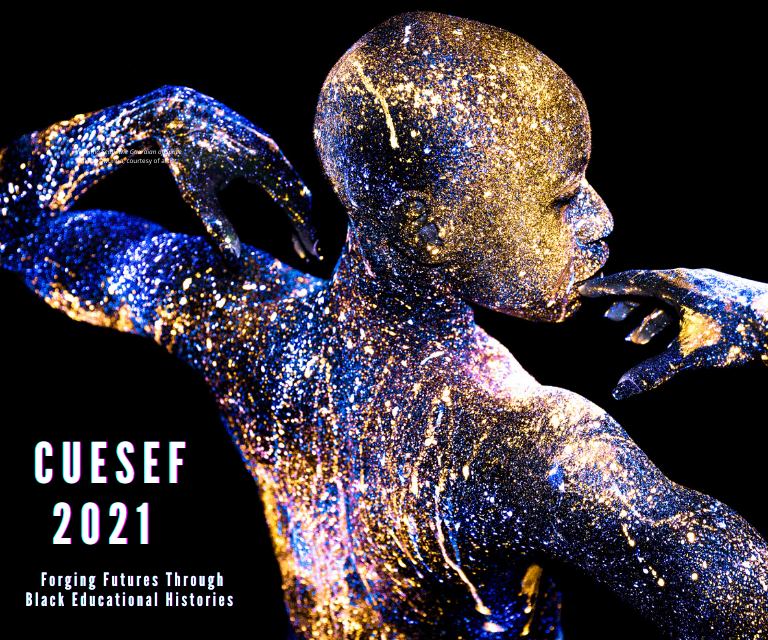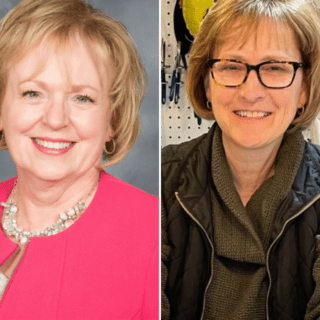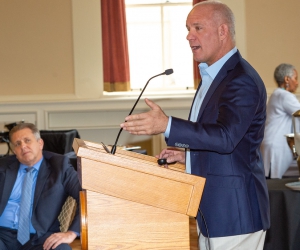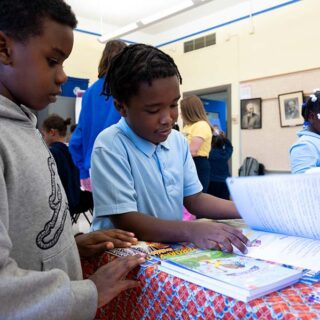
CUESEF 2021 Forges Futures by Examining Black Educational Histories
More than 600 students, alumni, faculty, staff, and community members registered for the University of Pittsburgh School of Education’s annual Center for Urban Education Summer Educators Forum (CUESEF).
Co-sponsored by The Heinz Endowments, CUESEF 2021 explored the theme of “Forging Futures Through Black Educational Histories” over the course of June 16 – 19.
The virtual conference consisted of nine mainstage plenary sessions with accomplished historians; 22 breakout sessions with book studies, discussions, and webinars; music breaks with DJ PVO; and a keynote address from Vanessa Siddle Walker, the Samuel Candler Dobbs Professor of African American Educational Studies at Emory University.
“Our theme invites historians to join us in exploring Black educational imaginations over time as essential to forging futures of self-determination, collective responsibility, and freedom,” said T. Elon Dancy II, executive director of the Center for Urban Education (CUE) and associate dean for equity and research and Helen S. Faison Chair for Urban Education at Pitt Education. “This year’s focus on Black education traditions assumes Blackness as expansive and not a category exclusive of ethnic and cultural realities.”
Historians who participated in plenary and breakout sessions included Dr. James Anderson (University of Illinois at Urbana-Champaign), Dr. Heather Williams (University of Pennsylvania), Dr. Donna Murch (Rutgers University), Dr. Jarvis Givens (Harvard University), Dr. Linda Perkins (Claremont Graduate University), Dr. Stephanie Evans (Georgia State University), Dr. Elizabeth Todd-Breland (University of Illinois at Chicago), Dr. V.P. Franklin (University of California, Riverside), Dr. Derrick Alridge (University of Virginia), Michelle Purdy (Washington University at St. Louis), and Dr. Michael Hines (Stanford University)
Valerie Kinloch, the Renée and Richard Goldman Dean of Pitt Education welcomed participants by reading a passage from writer James Baldwin.
“History, as nearly no one seems to know,” read Kinloch “is not merely something to be read. And it does not refer merely, or even principally, to the past. On the contrary, the great force of history comes from the fact that we carry it within us, are unconsciously controlled by it in many ways, and history is literally present in all that we do.”
The conference closed with a keynote address from Siddle Walker, titled “Re-Thinking, Re-Mapping, Renewed Commitments… Because the Children Matter,” which summarized the conference’s charge for transformative education.
“When we think of the history we’ve been taught, I want to use it to, perhaps, remap the chart for the present and then, if possible, challenge a renewed commitment to pick up these old possibilities and apply them in a new space,” said Siddle Walker. “Because I actually really do believe that children matter and that we have to make a difference for them and their generation as people did for us and our generations.”
CUE is one of the many centers and institutes at Pitt Education. CUE focuses its research and service around three areas: community partnership and engagement, educator development and practice, and student academic and social development.
In his closing remarks, Dancy addressed the significance of exploring history given that the conference concluded on June 19, which is observed as the holiday of Juneteenth, “a day that asks us to devote ourselves to radical imagination and organizing in our work.”
He demonstrated the value of re-examining history by explaining a common myth about the origins of Juneteenth. As the myth goes, on that day 156 years ago, the last enslaved Americans first learned of their liberation when a white military general read them the proclamation in the coastal city of Galveston, Texas. However, this narrative erases an important truth. Many Black people were already aware of their freedom and already had spread the news among each other.
“We now know this reality differently than the story that the myth tells because of the work of historians,” said Dancy. “This is the kind of intervention that Black educational histories make to forge futures. They summon the power of memory which is important in U.S. schooling contexts that require forgetting knowledges in order to learn.”
Learn more
- Watch CUESEF 2021 sessions on YouTube
- View a full agenda with titles, descriptions, and panelists
- Learn more about the panelists




